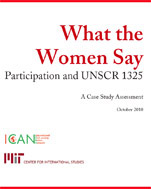Miliband Joins CIS for Wilhelm Residency

David Miliband
David Miliband, the Foreign Secretary for the United Kingdom from 2007 to 2010, will join the MIT Center for International Studies (CIS) as a Robert E. Wilhelm Fellow in residence from April 11 through 15, 2011. An alumnus of the Department of Political Science Department at MIT, Miliband delivered the MIT Compton Lecture in spring 2010. While in residence at CIS, he will give one major public talk on the war in Afghanistan, which is the topic he addressed for the Compton Lecture. He also will meet with faculty and students across the institute who share his interest in international affairs and global environmental issues. In addition, he will visit undergraduate classes in political science, participate in workshops with doctoral students, and meet individually with post-graduate students to learn more about their work. “This is a wonderful opportunity to have a distinguished practitioner here to visit with students and faculty at MIT. It’s an honor for the Center to host his visit and we look forward to his time with us,” said Richard Samuels, director of the Center for International Studies and Ford International Professor of Political Science. Photo courtesy Creative Commons.
Journalist from Pakistan Receives Neuffer Fellowship

Rabia Mehmood
Rabia Mehmood, a journalist in the Lahore bureau of Express 24/7 Television in Pakistan, has received the 2010-11 Elizabeth Neuffer Fellowship. Mehmood is the sixth recipient of the annual fellowship, which gives a woman journalist working in print, broadcast or online media the opportunity to focus exclusively on human rights journalism and social justice issues. The award is offered through the International Women's Media Foundation and is sponsored in part by CIS.
As a reporter for Express 24/7 Television, Mehmood creates news features and special reports on courts, crime, human rights, politics, socio-economic issues, health, environment and culture.
Based on what she observes in her coverage, Mehmood believes that the core issues behind the lack of social justice in her country include incompetence, nepotism, police negligence and corruption.
Throughout her career, Mehmood has reported on topics such as women's rights, freedom of speech and political unrest. She has covered the survivors and victims of terrorist attacks, suicide bombings and hostage sieges carried out by militants in Lahore. Mehmood has also reported on internally displaced people who left Northwest Pakistan as a result of insurgency by terrorists and military offensives.
From December 2008 to April 2009, Mehmood covered the detention, court case and release of Hafiz Saeed, the leader of Jamat-ud-Dawa, the charitable wing of Lashkar-e-Toiba, a militant organization. Jamat-ud-Dawa was banned by the United Nations' Security Council due to its links with terrorist attacks in India. After the organization was banned, the Pakistani government put Saeed and three other officials under house arrest and subsequently tried them in court.
While at CIS, Mehmood hopes to explore topics such as the failure of the Pakistani government to support human rights protection and the use of religion by extremist groups seeking power and political control. For example, in Pakistan's Northwestern province Khayber-Pakhtunkhwa, conservative extremist groups have blown up schools, halted polio vaccination campaigns and banned cultural activities, Mehmood says. These groups are adamant that women's roles should be restricted. Mehmood hopes to investigate the groups' use of violence and advocacy of rigid boundaries and their impact on the political system of Pakistan.
Mehmood holds a master's degree in mass communication and media studies from Kinnaird College for Women in Lahore and a bachelor's degree in mass communication and English literature from Lahore College for Women University.
Study Finds Promises on Women's Security Unmet

1325 Study
A year-long study in six countries has found that the goals of U.N. Security Council Resolution 1325, enacted 10 years ago, have not been fulfilled and that implementation is generally poor. The U.N. itself, major industrial powers, other international organizations, and conflict states have all failed to include women in peace processes and peacebuilding, two key goals of the resolution.
The study, "What the Women Say: Participation and UNSCR 1325," was organized by CIS and the International Civil Society Action Network, a NGO based in Washington DC. The 50-page study and recommendations were released on Oct. 28 at the U.S. Mission to the U.N.
In the six countries—Aceh (Indonesia), Colombia, Israel and Palestine, Liberia, Sri Lanka, and Uganda—researchers found that the governments had essentially failed to take the necessary steps to raise women's participation. In some of these countries, formal legislation had been enacted but had not been implemented. In others, special advisers or commissions have been created, but the offices are ineffective, politicized, or diverting resources from women NGOs.
The study was based on extensive interviews in each country, government documents, press accounts, and the experience of the study team. The work was supported by the Norwegian Ministry of Foreign Affairs, Irish Aid, Forum for Women and Development, Channel Foundation, among others.
The case studies were conducted by Cerue Garlo, Liberia; Shyamala Gomez, Sri Lanka; Suraiya Kamaruzzaman, Aceh; Turid Smith Polfus, Palestine/Israel; Elena Rey, Colombia; and Lina Zedriga, Uganda. (Biographies are available in the full report.)
"The insights these women have brought to the 1325 discourse underscore two related points," said John Tirman, executive director of CIS. "The first is that the Member States are not fulfilling their obligations, which is a serious failing that should concern everyone who believes in the utility of collective security. The second is this is a resolution that is both realistic and innovative, covering half the population of the world. It is important, and it is being ignored."
Joint Research on Regulatory Science

CIS, along with The European Medicines Agency (EMA) and MIT's Center for Biomedical Innovation (CBI), is launching a collaborative research project with a focus on enhancing regulatory science in pharmaceuticals.
Specific questions addressed by this project include how to adapt current regulatory requirements to best support the efficient development of safe and effective drugs; how to incorporate patient valuation of health outcomes and benefit-risk preferences into regulatory decisionmaking; how to implement what have been termed staggered and progressive approaches to drug approval; and how to improve fulfilment of post-marketing regulatory requirements.
The data and recommendations from this project are expected to link to implementation of the "EMA roadmap to 2015" and the overall CBI's New Drug Development Paradigms (NEWDIGS) Research Program. It will explore the feasibility, priorities, and practical considerations of implementing demonstration project(s) on some of the issues addressed during the course of the research.
The project, scheduled to be completed by December 2011, will be conducted within the framework of CBI's NEWDIGS research program in cooperation with CIS and EMA.



